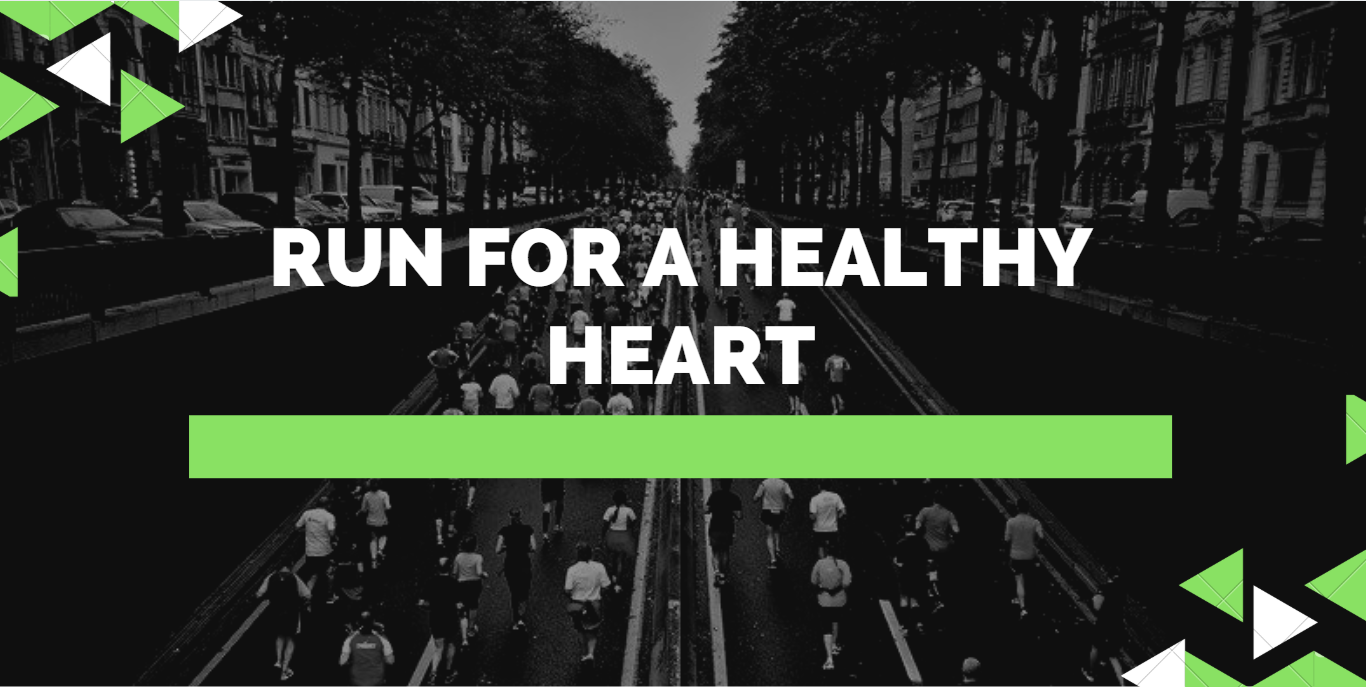Run for a healthy heart
Date
Duration
3 min read

Heart disease is a major killer around the world and the young population has a higher risk of contracting heart diseases. According to scientists, heart disease has started affecting the youth 10 years ahead, thanks to the deadly combination of a sedentary lifestyle, poor nutrition and lack of exercise.
Pricey memberships, crowded weight rooms, intimidating equipment and the time it takes to get to and from the gym are all common reasons people neglect to make exercise a priority.
Thankfully, there is a well-known, yet underutilized exercise that doesn’t break the bank or require a gym - running.
It's no secret that running is a great way to stay in shape. Pounding the pavement, trail or treadmill provides many bodily benefits, including keeping your heart in great condition. We took a deeper look at what running does for your heart and the risks it can pose, too.
How Running Keeps Your Heart Strong
Most of us know that muscles get stronger with exercise. When we exert ourselves, little tears form in our muscles and are then repaired during periods of rest, with muscles coming back stronger than before. Because your heart is a muscle, the same rule applies. Just like your other muscles, your heart needs time to recover. Experts recommend alternating hard runs with easier workouts in order for your heart to grow stronger.
Small Amounts of Running pay off
You don't need to go out and run thirty miles a week in order to help your heart. In fact, people who ran just 30 to 59 minutes a week, just a few minutes each day decreased their risk of cardiovascular death when compared to those who don't run at all.
A 45 minutes run each day reduces stress, increases endurance to difficult situations and helps open the mind to a clear thought process due to the increased access of oxygen to the brain.
Studies also show that runners live on average three years longer than people who don't run. And you don't have to be a fast, or even a regular runner, to reap these benefits. If you're looking to add years to your life, running is the answer.
Weekly plan of Running
Running just a few minutes each day may benefit your health. Research shows it may even extend your life. But do you need to run every day of the week to benefit? No.
How often you run each week should depend on your goals and physical fitness level. For example, if you’re a beginner, you don’t need to start out running every day because you’re at a higher risk of burnout or injury. Instead, start by running every other day for 20–30 minutes.
Fitting in enough time to run daily or several times a week can be a challenge. Try to run first thing in the morning before your day gets busy. Look for running clubs and running meetups in your area for support and motivation. Do short runs during the week, and save your long runs for the weekends when you have more time.
If you’re an experienced runner and plan to run every day, it’s important to schedule your weekly training with plenty of variety. For example, one day a week you could do a long run. You could spend another day on speed work. One to two days could be short, recovery runs. The other days can be spent doing a workout, where you run up an incline repetitively to build up strength in your legs.
Whether you prefer the environment of an athletic club or wellness center, the comfort of your home or the great outdoors, there are many locations compatible for running. Plus, the only pieces of equipment you need are yourself, a good pair of running shorts and a pair of athletic shoes and some motivational tunes.
TRUEREVO has made running super easy and comfortable with its double-layered SPS Phone pocket shorts that has a phone pocket, an extra pocket for water bottle and a zipper back pocket for keys or cash. TRUEREVO also has slim-fit, ultra-light and moisture-wicking collection of running tees in attractive colors.
And then there’s the diet. A major contributor to heart problems, your nutrition is paramount when dealing with such a serious condition. Processed foods, refined sugar, and excess fat are a big no-no. Saturated fat and trans-fats must be avoided. Instead, healthier fats rich in monounsaturated fatty acids (MUFA) like canola oil should be opted for.
Running can significantly improve cardiovascular health. In general, the more people run, the healthier their hearts tend to be. Even if you meet just the minimum amount of physical activity—(30 minutes, 5 times per week), you’ll live longer.






